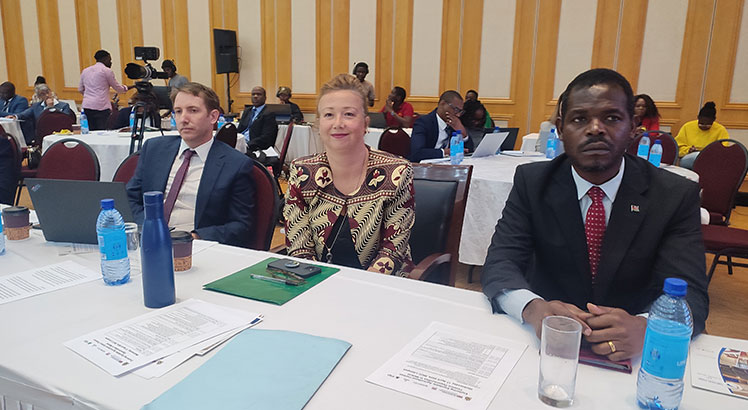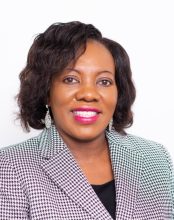Malawi can reap from carbon financing—UK
British High Commissioner Fiona Ritchie has asked Malawi to actualise carbon finance authorisation processes to start benefiting from the initiative which promises incomes for both government and the people at grass root level.
She said this in Lilongwe yesterday during a day-long conference on carbon financing aimed at exploring the current state of the carbon market in the country to bring together those working across the carbon market ecosystem to develop a roadmap towards an equitable future for smallholder farmers.
Carbon financing is an innovative funding tool that places financial value on carbon emissions and allows companies wishing to offset their own emissions to buy carbon credits earned from sustainable projects.

Ritchie said just like other areas of regulation, governments have a role in establishing clear, light-touch rules and regulations that allow markets to function and grow and incentivise a wide range of actors to trade.
She said: “I hope that today’s event will provide an opportunity to clarify some of the areas of uncertainty that industry players have, as well as shining the light on models that have worked well in Malawi and elsewhere.”
Ritchie further called for the need to encourage initiatives that can help to ensure that a fair share of proceeds from carbon reach smaller groups who face higher hurdles connecting with buyers.
Ministry of Natural Resources and Climate Change Principal Secretary Yusuf Mkungula said government is already formulating the Malawi Carbon Trading Regulatory Framework to ensure that all investors follow guidelines on carbon financing.
He said: “We are receiving a number of investors and prospective developers on carbon trading interested in offsetting carbon dioxide in the country in line with Article 6 of the Paris Agreement.”
Malawi is yet to regulate carbon trade.
Article 6 of the Paris Agreement sets out how countries can pursue voluntary cooperation to reach their climate targets.
According to Mkungula, Malawi stands to benefit more in terms of revenue generation in the form of foreign exchange, improve national assets and increase exposure of experts in terms of trading.
He said when the carbon trading projects start operating on full scale probably in two years, Malawi will make about $5 million (about K8.7 billion) annually.
The event, held under the theme ‘Exploring equitable agricultural carbon finance opportunities in Malawi’, was supported jointly by the UK Government’s Foreign, Commonwealth and Development Office-funded Work and Opportunities for Women programme and the Unitesd States Agency for International Development (USAid) and UKaid co-funded Modern Cooking for Healthy Forests programme. naThe long-awaited Football Association of Malawi (FAM) academy is set to take off at Luwinga Technical Development Centre in Mzuzu with the first cohort of 27 players.
FAM technical director Benjamin Kumwenda led the selection exercise last weekend in Lilongwe.
In an interview yesterday, he said the 27 were selected out of 81 players who took part.
Said Kumwenda: “The boys who participated in the selection process include the 40, who were identified during the Under-14 League Rough Diamonds finals while others were selected through the grass roots football activities.
“The Luwinga Inclusive Academy will be a residential academy where all the players will be residing and doing their studies.
“We will meet with the parents and guardians of the selected players in June so that they understand what the academy is all about and how it will work.”
Kumwenda added that before going full throttle, the boys will have a min-camp to test and assess the facility.
FAM is also expected to choose a girls’ team to be part of the academy.
During his visit the country last year, Fifa director for member associations responsible for Africa Gelson Fernandes promised a full package for the academy, is including quality education, soccer and social behaviour etiquette.
He was quoted in The Nation as having said that Fifa will in the first year pump in $150 000 (about K262.6 million) and $100 000 (about K175 million) in the second year.
Malawi is among three African countries selected to establish inclusive football academies that will, among others, teach young players best footballing techniques and how they can prepare for life outside football.
The other countries are Mauritania and Djibouti.





